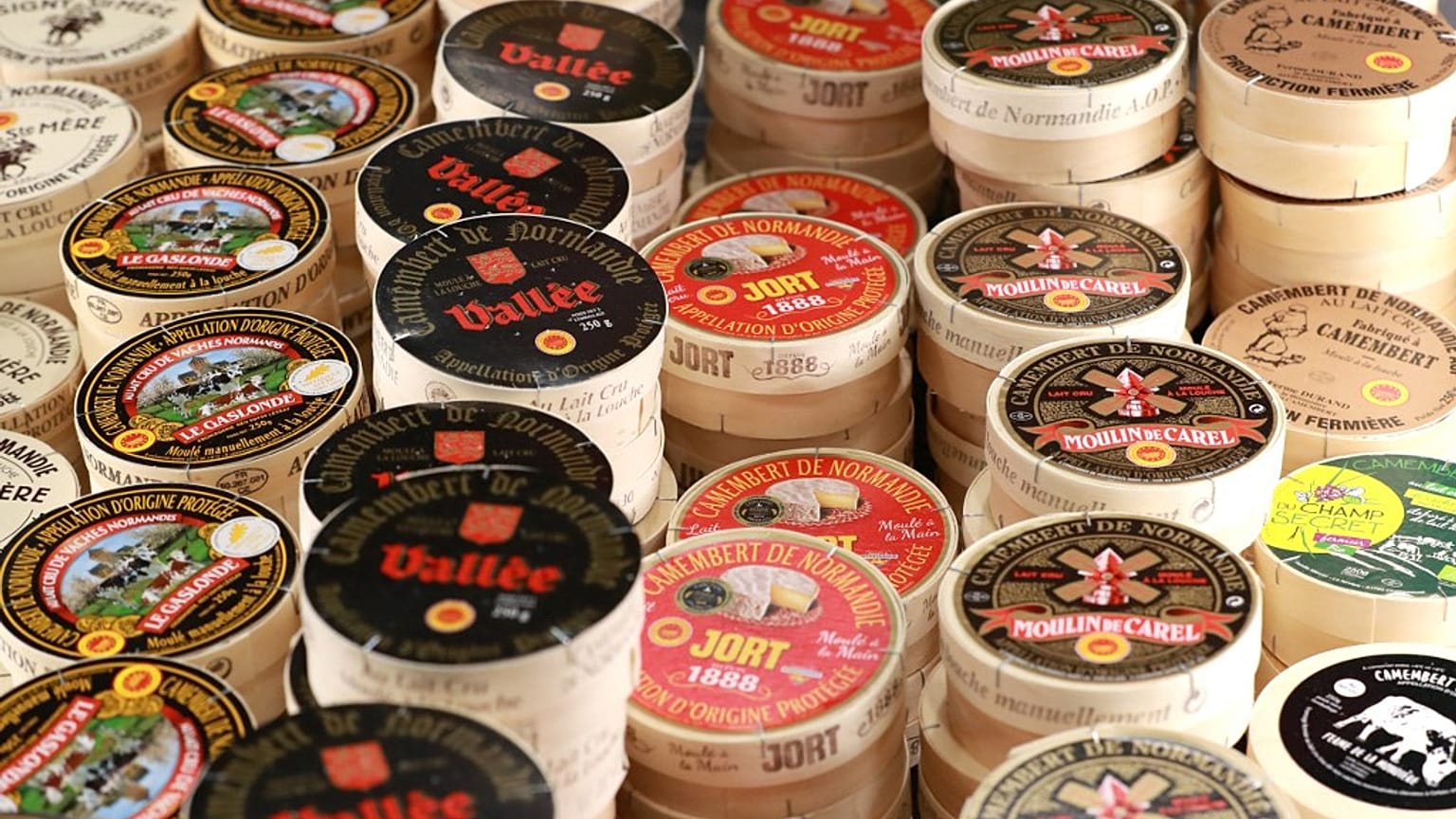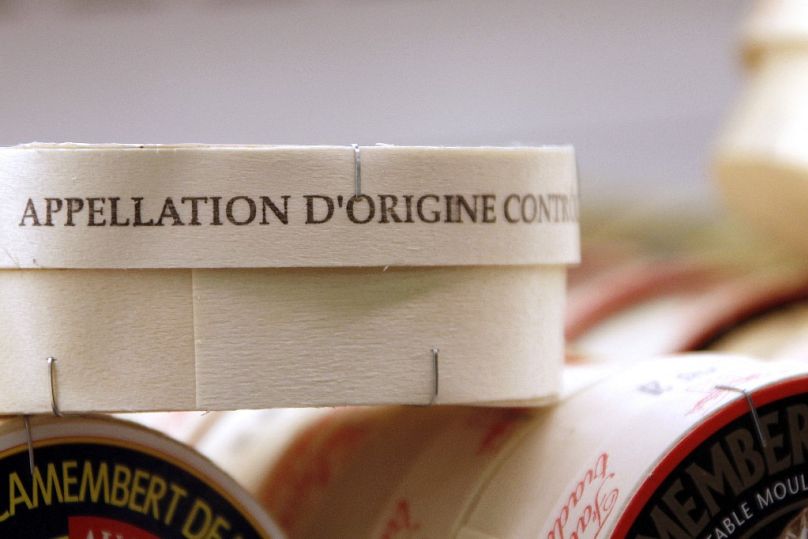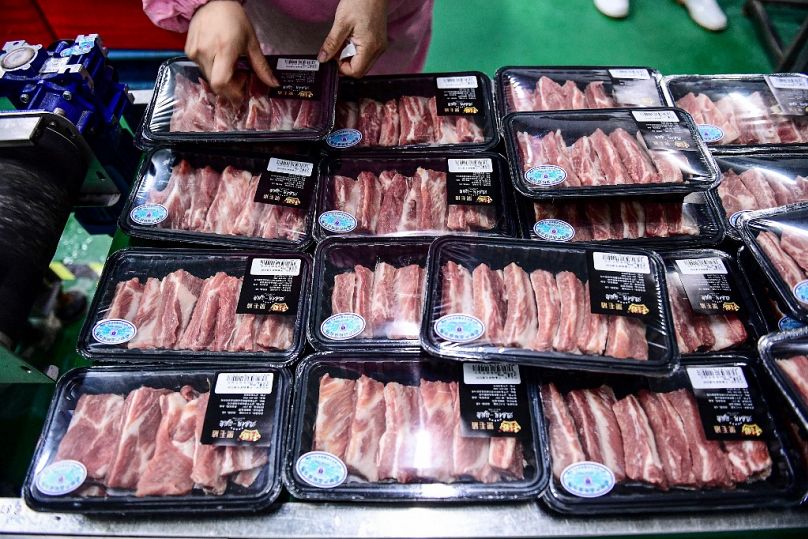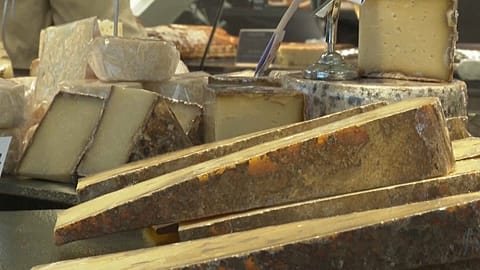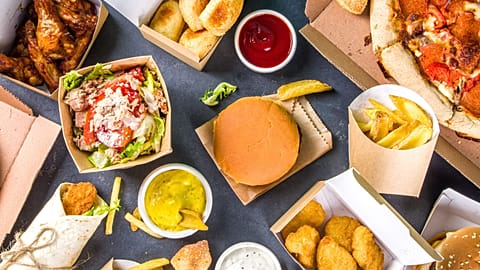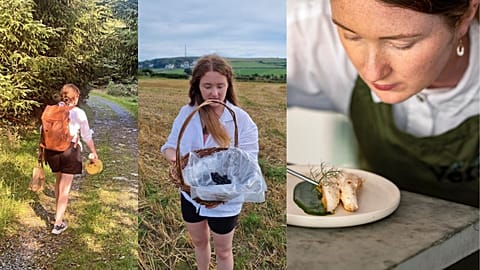France is worried about its precious Camembert cheese as the EU says its wooden packaging is hard to recycle sustainably.
The European Union has long known that the way to France’s heart is through its stomach. So, don’t touch the Camembert - never, ever.
On Wednesday, legislators at the European Parliament are voting to make sure it doesn’t happen.
In one of the many legal proposals on streamlining and optimising waste management throughout the 27-nation bloc, some French cheese producers sniffed out something and turned it into a culinary stink.
They claimed that the proposal would make it illegal for Camembert to be cradled into its usual wooden packaging for its final weeks of ripening and, eventually, sale. The round box is as essentially Camembert as its unctuous texture and pungent smell.
Suddenly, there was a frenzied flutter that something fundamentally French would fall foul of the Brussels bureaucrats - derisively known by many as Eurocrats - who are all too often blamed for flaws real and false.
“It is a matter of common sense. Don’t touch our Camemberts!” said Jean-Paul Garraud, a member of the European Parliament for France’s far-right Rassemblement National.
If forced into something easier to recycle like plastic, the perfect breathing of the cheese through wood might otherwise get sweaty and flabby. Wood, though, is very hard to recycle sustainably, so the EU plans to move it out of food packaging as much as possible.
Even General Charles de Gaulle, the French World War II hero and later president of the nation, knew all about the cheese issue. “How do you want to run a country that has 246 kinds of cheese,” he was quoted as complaining.
The centre-right European People’s Party, the biggest group in the European Parliament with a traditional farming electorate and penchant for heritage protection, came to the defence of the wooden boxes for Camembert and other cheeses.
“Our French cheeses are loved all over the world. But who can imagine a Camembert or a Mont d’Or without its wooden strapping? Packaging them in plastic would be a gustatory and environmental aberration,” said French MEP Laurence Sailliet.
“Europe must know how to protect the environment, but never to the detriment of the specific characteristics of its member states,” she added.
And food is one of the touchiest characteristics, for sure.
The British used anti-EU food foment to the extreme in the years leading up to Brexit, with former Prime Minister Boris Johnson, then still a Brussels journalist, leading the tabloid assault with stories that the EU would insist that bananas would have to be straight and eliminate beloved British biscuits.
It helped turn the United Kingdom against the EU, and voters decided in a referendum to leave.
France is very far from that stage, but Environment Commissioner Virginijus Sinkevicius said on Tuesday the EU would make sure that the raw-milk specialized non-industrial Camemberts — those that have a controlled designation of origin — will be exempt from any regulation.
The vote on Wednesday will include such an exemption.
“Indeed, in the EU, certain food packaging made of wood, textiles, ceramics are placed on the market in very small quantities, and many of them protected by the food quality legislation,” Sinkevicius said. “Such packaging may have difficulties to be recycled at scale and is open for specific exemptions.”















